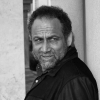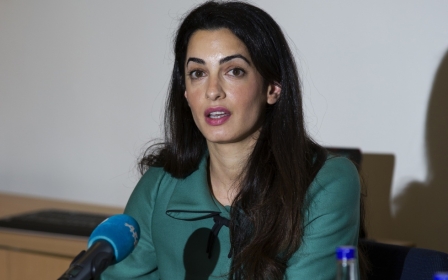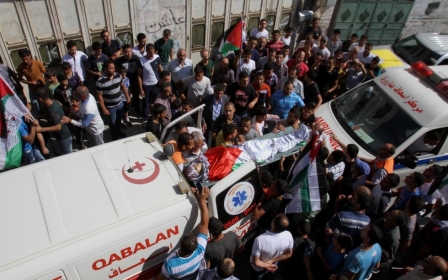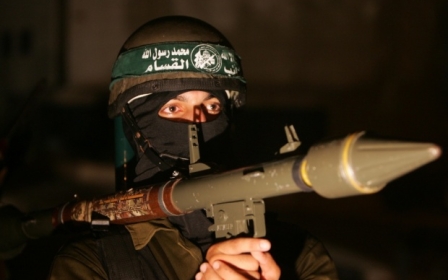On Gaza and global rage
Published date: Jeudi 12 février 2015 - 20:00
|
Last update: 9 années 9 mois ago
Palestinian efforts to encourage a boycott of Israel, modeled on the South African anti-apartheid global campaign, is gaining momentum as a democratic movement
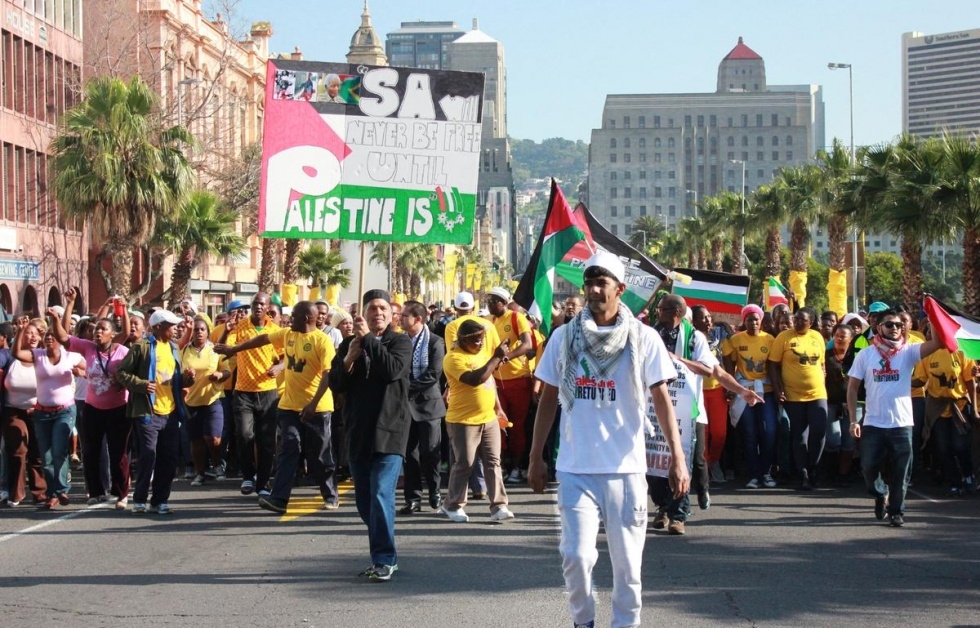
On 9 August, hundreds of thousands of people worldwide took to the streets in response to a call from Palestinian civil society in the occupied and besieged Gaza Strip, and the Boycott, Divestment, Sanctions, National Committee (BNC), for a Day of Rage.
This mobilization comes as grassroots pressure mounts on complicit Western governments to impose a military embargo on Israel. In its call for a Day of Rage, Palestinian Civil Society made it absolutely clear that:
"As we face the full might of Israel’s military arsenal, funded and supplied by the United States and the European Union, we call on civil society and people of conscience throughout the world to pressure governments to sanction Israel and implement a comprehensive arms embargo immediately. Take to the streets … with a united demand for sanctions on Israel."
In response to an earlier call issued by the same civil society organizations in Gaza, and endorsed by the BNC, Spain announced a “provisional” suspension of military exports to Israel on 31 July. On 7 August, Evo Morales, president of Bolivia, became the first head of state to declare his support for Boycott, Divestment and Sanctions (BDS). These actions were a precursor to the global support for Gaza and Palestine shown on 9 August.
The Israeli wrath inflicted on the Palestinians of Gaza, two-thirds of whom are refugees, entitled to the right of return, comes within an ideological context of tribal bigotry, racism, and exclusivism. In 2004, Israeli Professor Arnon Soffer, Head of the Israeli Occupation Force’s National Defense College, and advisor to Ariel Sharon, spelt out Israel’s macabre expectation from the unilateral Israeli disengagement from Gaza (2005) in an interview with The Jerusalem Post:
“[W]hen 1.5 million people live in a closed-off Gaza, it's going to be a human catastrophe. Those people will become even bigger animals than they are today,... The pressure at the border will be awful. It's going to be a terrible war. So, if we want to remain alive, we will have to kill and kill and kill. All day, every day...If we don't kill, we will cease to exist…Unilateral separation doesn't guarantee "peace" - it guarantees a Zionist-Jewish state with an overwhelming majority of Jews”
Then, there is the view bluntly expressed in 2002 by Israel’s then chief of staff, General Moshe Yaalon, which sums up the objective of the current blood bath: “The Palestinians must be made to understand in the deepest recesses of their consciousness that they are a defeated people”.
The resemblance of Israel's campaign of tribal racist hate both to that of apartheid South Africa and to Hitler’s murderous regime has recently been articulated by ANC freedom fighter and former South African Cabinet Minister, Ronnie Kasrils, who is Jewish:
“Certainly we South Africans can identify the pathological cause, fuelling the hate, of Israel’s political-military elite and public in general. Neither is this difficult for anyone acquainted with colonial history to understand the way in which deliberately cultivated race hate inculcates a justification for the most atrocious and inhumane actions against even defenseless civilians - women, children, the elderly amongst them. In fact was this not the pathological racist ideology that fuelled Hitler’s war lust and implementation of the Holocaust?”
The Israeli establishment’s stated goal of annihilating Palestinians to manage the “demographic threat” and to maintain “calm” by “mowing the lawn” (Israeli-speak for flattening Gaza every two years) is exactly why we in Palestine have concluded that the Palestinian struggle for self-determination must work to isolate apartheid Israel in the same way that apartheid South Africa was isolated through a campaign of Boycott, Divestments and Sanctions (BDS.)
Today, there is a growing mass-based non-violent struggle inside Palestine, alongside other forms of struggle, exactly as there was inside apartheid South Africa. It is also evident today that the Palestinian BDS campaign, modeled on the South African anti-apartheid global campaign, is gaining momentum as a democratic movement based on the universality of human rights and the implementation of international law. These values are the antithesis of Zionism, Israel’s hegemonic ideology, which is about religious, ethnic, and racial superiority. Our struggle, like that of Blacks in South Africa, and African Americans in the United States, is inclusive and pluralistic: one that maintains our humanity and dignity in the face of a racist, genocidal state.
This is exactly what Steve Biko, a hero of the South African anti-apartheid struggle - who paid with his life for the freedom of all South Africans - meant when he said:
"Not only have the whites been guilty of being on the offensive, but by some skilful manoeuvres, they have managed to control the responses of the blacks to the provocation. Not only have they kicked the black, but they have also told him how to react to the kick. For a long time the black has been listening with patience to the advice he has been receiving on how best to respond to the kick. With painful slowness he is now beginning to show signs that it is his right and duty to respond to the kick in the way he sees fit."
And we, Palestinians, have decided to respond to the Zionist kick in the way we see fit! And for that, we need the support of the freedom-loving “every man and every woman”, as opposed to the complicit, official world leaders who have chosen to support oppression and blame the victim. Now is the time for global civil society to help us end Israeli racism and genocide. The only way to ensure a just peace and redress for Palestinian dispossession is for global civil society to intensify the boycott of the apartheid Israeli state, and by advocating for divestment from Israel and sanctions against it.
Veteran Australian journalist John Pilger , writing in The New Statesman on the 2009 assault on Gaza said:
"What happens in Gaza is the defining moment of our time, which either grants the impunity of war criminals the immunity of our silence, while we contort our own intellect and morality, or gives us the power to speak out."
The global masses that demonstrated their support for Palestinian rights on the Day of Rage, remind us of the demonstrations in the 1980s against apartheid South Africa. These global protests since 2009 have shown us in Palestine that this is our “South Africa moment”. Just as the South African internal mass-based anti-apartheid struggle and the international anti-apartheid boycott and solidarity movement brought an end to the apartheid regime, Palestinians, with the support of people of conscience worldwide, will bring an end to Israel’s multi-tiered system of oppression.
Governments across the world must be forced to act in accordance with the will of their people and hold Israel accountable for war crimes, and impose sanctions and an arms embargo. People of conscience globally have spoken and their voices have reached us here in Gaza. We know that their voices have been heard in the capitals of the world and that their voices signal an end to Israeli apartheid. The clock is ticking.
Hence the importance of the Gaza Day of Rage!
- Dr Haidar Eid is Associate Professor in the Department of English Literature, Al-Aqsa University, Gaza Strip, Palestine.
The views expressed in this article belong to the author and do not necessarily reflect the editorial policy of Middle East Eye.
Photo credit: housands of people stage a solidarity demonstration for Gaza toprotest the Israeli attacks in Gaza Strip on August 9, 2014 in Cape Town, South Africa.
Middle East Eye propose une couverture et une analyse indépendantes et incomparables du Moyen-Orient, de l’Afrique du Nord et d’autres régions du monde. Pour en savoir plus sur la reprise de ce contenu et les frais qui s’appliquent, veuillez remplir ce formulaire [en anglais]. Pour en savoir plus sur MEE, cliquez ici [en anglais].


